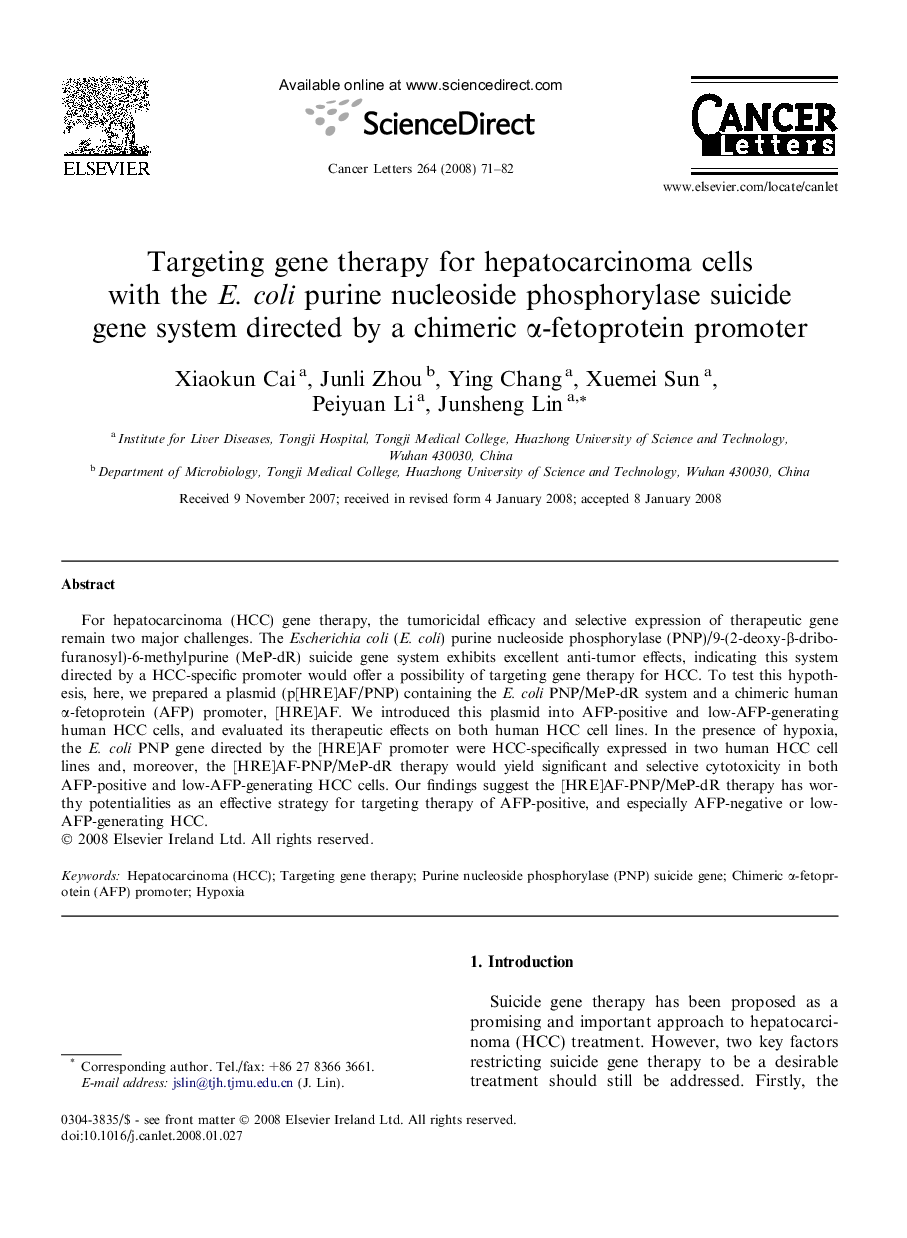| Article ID | Journal | Published Year | Pages | File Type |
|---|---|---|---|---|
| 2115044 | Cancer Letters | 2008 | 12 Pages |
For hepatocarcinoma (HCC) gene therapy, the tumoricidal efficacy and selective expression of therapeutic gene remain two major challenges. The Escherichia coli (E. coli) purine nucleoside phosphorylase (PNP)/9-(2-deoxy-β-dribofuranosyl)-6-methylpurine (MeP-dR) suicide gene system exhibits excellent anti-tumor effects, indicating this system directed by a HCC-specific promoter would offer a possibility of targeting gene therapy for HCC. To test this hypothesis, here, we prepared a plasmid (p[HRE]AF/PNP) containing the E. coli PNP/MeP-dR system and a chimeric human α-fetoprotein (AFP) promoter, [HRE]AF. We introduced this plasmid into AFP-positive and low-AFP-generating human HCC cells, and evaluated its therapeutic effects on both human HCC cell lines. In the presence of hypoxia, the E. coli PNP gene directed by the [HRE]AF promoter were HCC-specifically expressed in two human HCC cell lines and, moreover, the [HRE]AF-PNP/MeP-dR therapy would yield significant and selective cytotoxicity in both AFP-positive and low-AFP-generating HCC cells. Our findings suggest the [HRE]AF-PNP/MeP-dR therapy has worthy potentialities as an effective strategy for targeting therapy of AFP-positive, and especially AFP-negative or low-AFP-generating HCC.
